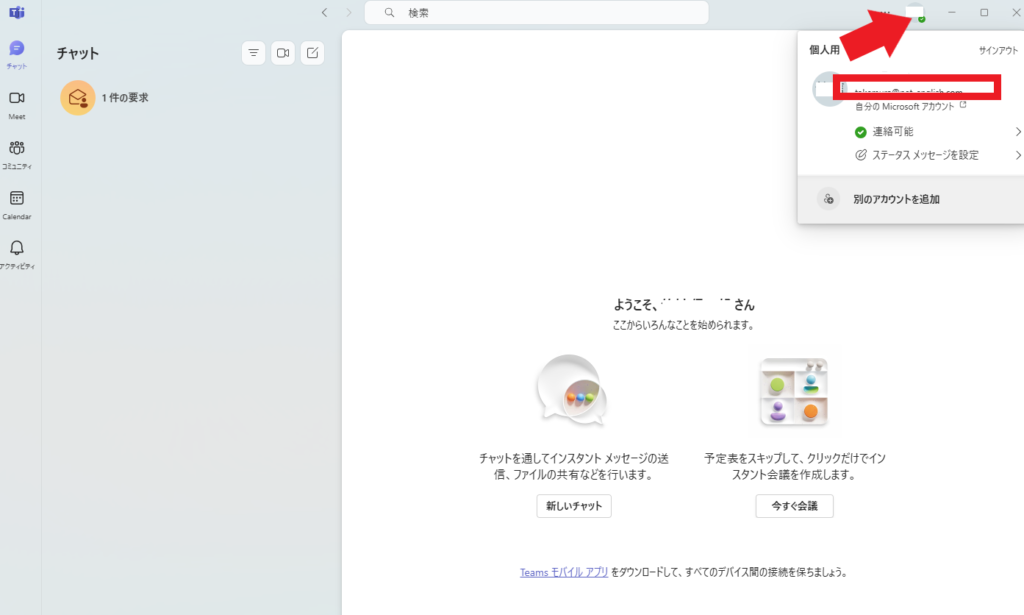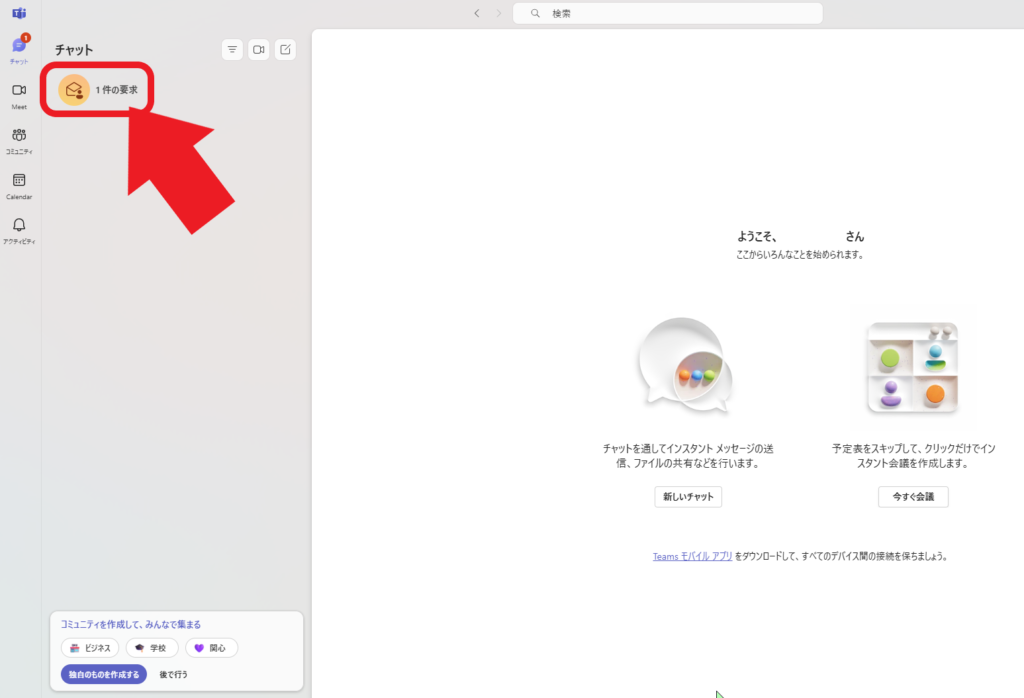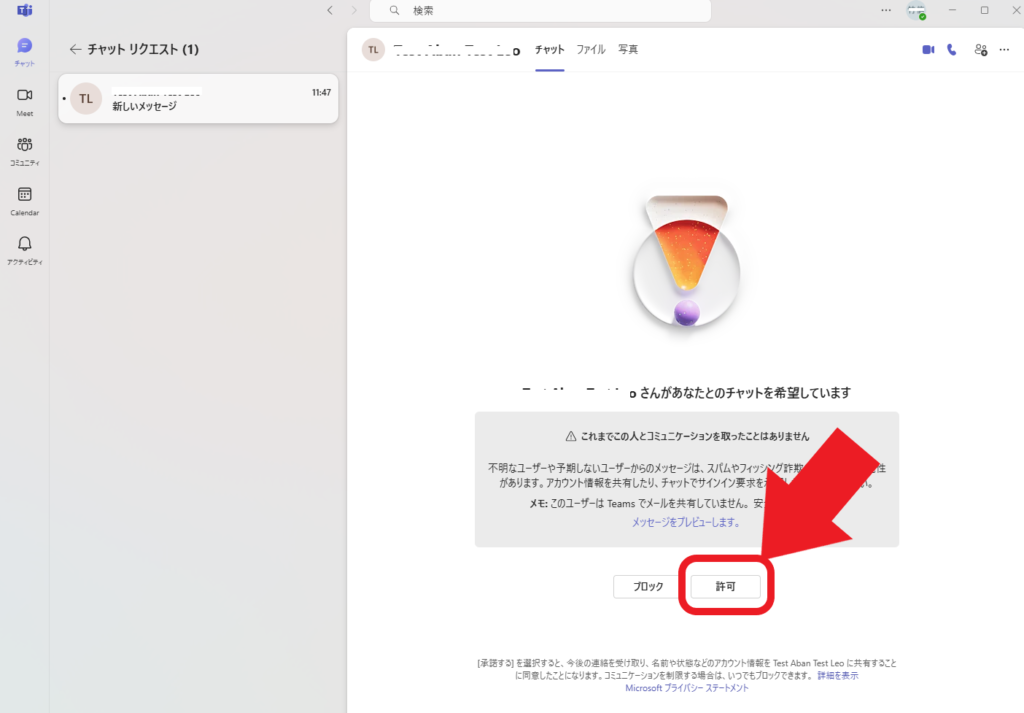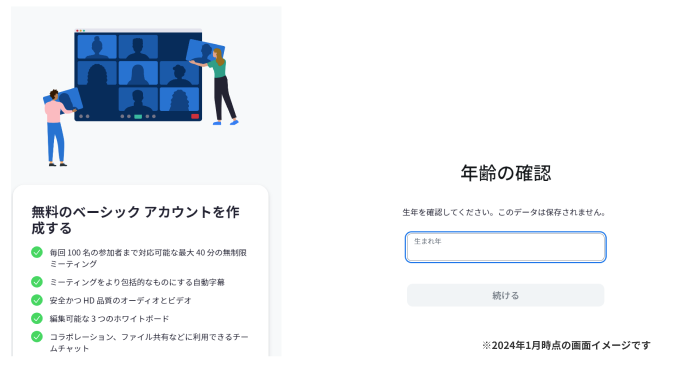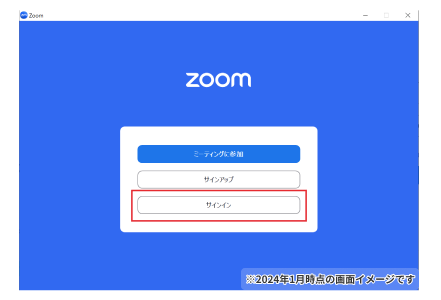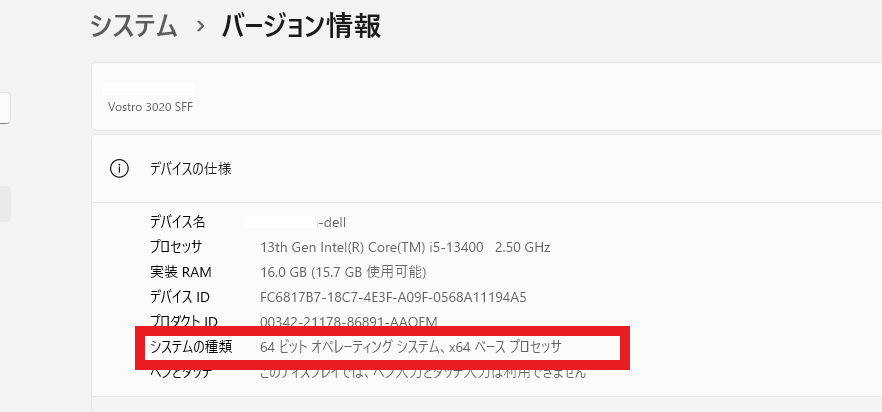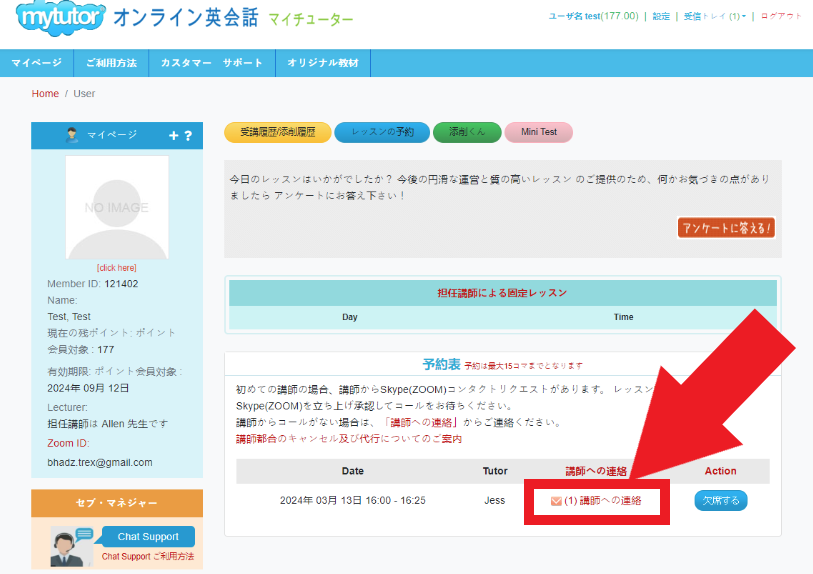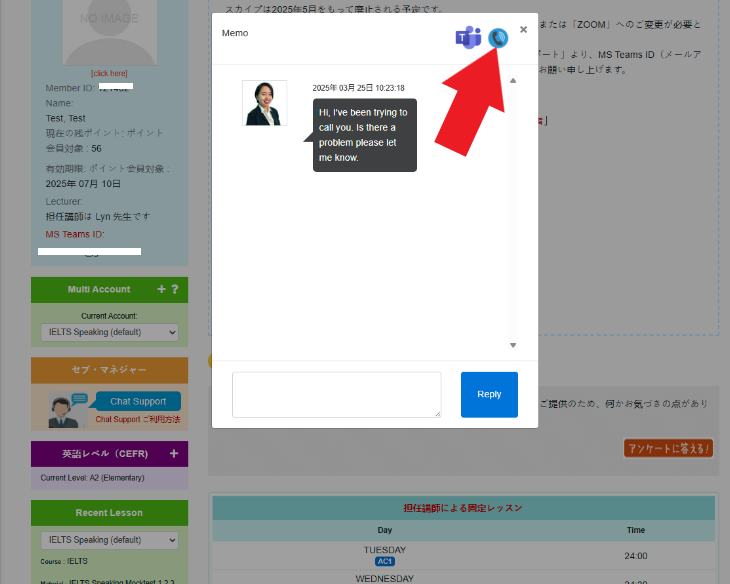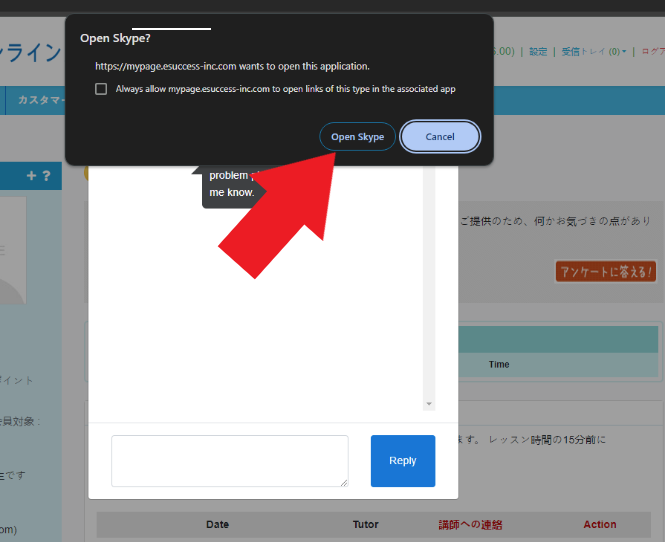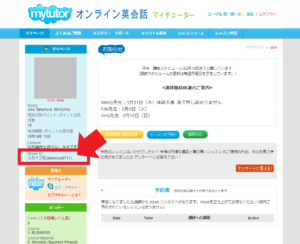● Read the English text below, write the meaning in English, and write it on the answer sheet.
● The recommended word count is 45 to 55 words.
● If it is determined that your answer does not correspond to the English text, you may receive a score of 0. Please read the English text carefully before answering.
Evaluation Criteria
■ Answers will be graded on four aspects: content, structure, vocabulary, and grammar.
■ Each perspective is evaluated on a 5-point scale from 0 to 4 points, with a maximum score of 16 points.
「3 Tips for Answering Summary Questions」
- Grasp the overall message conveyed in the text.
- Incorporate key points from each paragraph.
- Summarize specific expressions into abstract terms.
Writing Summary Task (Intermediate)― Answer Key for Tutor
Lesson 1.
Many people talk about using smartphones in class. Some think it is good for students, while others say it is not always helpful. Schools and teachers are trying to decide if using smartphones in class should be used more or less. Students, teachers, and parents all care about this topic. This is a topic that many people have strong opinions about.
Some people say that using smartphones in class helps students in many ways. It can help them learn more easily. For example, it can help students focus, stay healthy, or work better with classmates. Teachers believe it helps students grow and become more responsible.
However, others say that using smartphones in class is not always good. Some students feel it makes school harder or boring. It may cause stress, and not all students enjoy it. Some think it takes too much time. Because of this, people think schools should listen to students and use it carefully. (157 words)
Model Answer (51 words):
Some children use smartphones to study or talk with friends, and some teachers say they help students learn. However, some children use them too much and feel tired at school.
Also, they may see bad things online. So, parents and schools need to teach children how to use them safely.
====================================================
Lesson 2
Many students join school clubs. Some students enjoy playing sports like soccer or basketball. Others join music, art, or science clubs. School clubs give students chances to do fun things after school and make new friends.
There are many good points about school clubs. Students can learn teamwork by working with others. They can also try something new, like playing a new instrument or doing experiments. Some students say that they feel happy and more confident because of their club activities. Teachers also say that students who join clubs often do better in school.
However, some students feel very tired because they are too busy with club activities. They get home late and do not have enough time to finish their homework. Also, some students do not have much interest in clubs and feel it is better to go straight home. Because of this, some schools are thinking about making club activities shorter. (153 words)
Model Answer (49 words):
Many students join school clubs and enjoy sports, music, or other activities.
They can learn teamwork and feel happy. Teachers say clubs help students do better in school.
However, some students feel tired or do not have time for homework.
So, some schools want to make club activities shorter.
=============================================================
Lesson 3
Many people think reading books is important for children. These days, some children like to read books at home or at school. Other children enjoy using smartphones or playing games more than reading. Some teachers and parents are trying to help children enjoy reading more.
There are many good points about reading books. Books can help children learn new words and ideas. When they read stories, they can use their imagination and think deeply. Some children feel happy and relaxed when they read. Teachers also say that children who read often do better in school.
However, not all children like to read. Some children think reading is boring or difficult. They say that videos or games are more fun. Also, some families do not have many books at home. Because of this, some schools are making reading time fun and trying to give more books to students, so they can enjoy reading. (152 words)
Model Answer (47 words)
Reading books can help children learn words and use their imagination.
Some children enjoy reading and feel happy when they do it.
However, some children think reading is boring or hard.
To help them, some schools are trying to make reading fun and give students more books.
=================================================================
Lesson 4.
Many schools are starting to offer online classes. These classes can be taken at home by using a computer or tablet. Some students like this new way of learning, but others still prefer going to school. There are both good and bad points to online classes.
One good point is that students can learn at their own speed. If something is difficult, they can stop and try again. Some students feel less shy online, so they ask more questions. Also, students can save time because they don’t need to travel to school. This gives them more time to rest or study.
However, some students say it is hard to study alone. They miss seeing their friends and teachers in person. Some students also have problems with internet or computer issues. Because of this, some schools are trying to find a balance. They are using both online and in-person classes to help students learn in the best way. (157 words)
Model Answer (49 words)
Some students enjoy online classes because they can study at their own speed and save time.
They also feel less shy and ask more questions.
However, other students feel lonely or have internet problems.
So, some schools now use both online and in-person classes to help students learn better.
================================================
Lesson 5
Many people think it is important for students to eat breakfast before going to school. Some students eat breakfast every morning, but others skip it because they are too busy or not hungry. There are both good and bad effects of not eating breakfast.
Some teachers say breakfast helps students do better in school. When students eat in the morning, they can focus more in class. They feel more awake and have more energy. Also, breakfast gives students the vitamins and minerals they need to stay healthy. For these reasons, many schools tell students to eat breakfast every day.
However, some students say they don’t have time to eat in the morning. Others say they feel sick when they eat too early. Also, some families do not have enough food at home. Because of this, some schools have started breakfast programs. These programs give free breakfast to students so they can start the day with a healthy meal.
Model Answer (48 words)
Some students eat breakfast and feel more focused and healthy at school.
Teachers say breakfast gives students the energy they need to learn.
However, some students skip breakfast because they are busy or feel sick.
So, some schools give free breakfast to help students start the day well.
======================================================
Lesson 6.
Many people think learning a second language is important. Some students start learning a second language, like English or Spanish, in elementary school. Others begin later, in junior high or high school. There are many reasons why people study other languages.
Some people learn a new language to travel more easily. If they know the local language, it’s easier to talk to people, ask questions, and enjoy their trip. Others study languages to get a better job in the future. Many companies want workers who can speak more than one language. Also, learning a language helps people understand different cultures.
However, learning a new language can be difficult. Some students say it is hard to remember new words or speak clearly. Others feel nervous when they make mistakes. Because of this, some people stop learning. To help students, some schools are using games and songs to make language learning more fun and interesting. (153 words)
Model Answer (49 words)
People learn second languages to travel, get good jobs, and understand other cultures.
It helps them speak with more people and learn about the world.
However, some students think it is hard and feel nervous.
So, schools use fun ways like games and songs to help students enjoy learning.
=======================================================
Lesson 7.
Children today spend a lot of time using the internet. They use it to watch videos, play games, do homework, and talk with friends. The internet is a useful tool, but some people are worried about how it affects children.
One good point is that children can learn many things online. They can find answers to their questions and study different subjects. The internet also helps them talk with friends and stay connected, especially when they cannot meet in person. Some students say it makes learning more fun and interesting.
However, the internet can also be dangerous. Some websites show violent or scary content. Also, some children talk to strangers online, which can be risky. Another problem is that some students use the internet too much and do not sleep well or finish their homework. Because of these problems, many parents and teachers teach children how to use the internet safely and wisely. (153 words)
Model Answer (50 words)
Children use the internet to study, talk with friends, and have fun.
It helps them learn and stay connected with others.
However, some websites are dangerous, and talking to strangers can be risky.
Also, some children spend too much time online.
So, adults teach them how to use it safely.
========================================================
Lesson 8.
Exercise plays an important role in our lives. Some people go to the gym, while others enjoy running, swimming, or playing sports like soccer and basketball. There are many ways to stay active and healthy.
One reason people exercise is to keep their bodies strong. Regular exercise helps build muscles and keep the heart healthy. It also helps people sleep better and feel more energetic during the day. Some teachers say that students who exercise often do better in school because they can focus more.
On the other hand, some people don’t enjoy exercise. They say it is too hard or they don’t have enough time. Some students feel tired after school and just want to rest or play games. Also, not everyone has a safe place to exercise near their home. To help with this, some schools and cities are trying to make parks and sports programs more available to everyone. (152 words)
Model Answer (51 words)
Exercise helps people stay strong, sleep well, and focus better at school.
Many people enjoy sports or going to the gym.
However, some people say they don’t have time or a safe place to exercise.
So, schools and cities are working to give more people chances to stay active and healthy.
=======================================================
Lesson 9
Some students choose to do volunteer work in their free time. They help others without getting paid. This can be done at schools, hospitals, parks, or other places. Volunteering can be a good experience for young people.
Volunteers do many kinds of work. Some help clean parks or plant trees. Others read books to children or visit elderly people who live alone. Some students join events to collect food or clothes for families in need. These activities help people and also make volunteers feel proud and happy.
Still, not all students want to volunteer. Some say they are too busy with homework or club activities. Others are shy or don’t know how to get started. Because of this, some schools have started volunteer programs. These programs help students find ways to volunteer and show them that even small actions can make a big difference.
Model Answer (47 words)
Some students do volunteer work to help others and feel proud.
They clean parks, read to children, or collect food and clothes.
However, some students are busy or shy.
To support them, some schools started programs to make it easier for students to join and enjoy volunteering.
==========================================================
Lesson 10
Getting enough sleep is important for students. Without good sleep, it is hard to stay healthy and do well in school. Students who sleep well often feel more focused and have more energy during the day.
Sleeping well has many benefits. Students who go to bed early and get enough sleep can concentrate better in class and remember things more easily. Sleep also helps the body grow and stay strong. Teachers and doctors say that students need around eight hours of sleep every night to stay healthy and happy.
However, not all students get enough sleep. Some stay up late playing games or watching videos. Others have too much homework or worry about school. This can make them tired, and they may have trouble getting up in the morning. To solve this problem, some schools are starting classes later so students can sleep longer and feel better during the day. (150 words)
Model Answer (50 words)
Good sleep helps students stay healthy and focus better in class.
Experts say students should sleep about eight hours every night.
But many students stay up late because of games, homework, or stress.
Some schools now start later in the morning to help students get more sleep and feel better.
===================================================
Lesson 11
School events are an important part of student life. Festivals, concerts, and sports days are common examples. These events are usually planned by teachers and students together, and they bring the school community closer.
Taking part in school events has many benefits. Students can learn how to work as a team when they prepare for the event. They also build confidence by trying new things like dancing, acting, or giving speeches. These experiences help students make friends and feel proud of their school.
However, not everyone enjoys school events. Some students feel nervous about standing in front of others. Others may think the events take too much time, especially when they have tests or homework. Also, students who are shy or quiet sometimes feel left out. Because of this, teachers are trying to create events where everyone can take part in different ways and enjoy the experience, even if they don’t want to perform. (154 words)
Model Answer: (48 words)
School events help students learn teamwork and build confidence.
They enjoy dancing, speaking, and working together.
But some students feel nervous or left out, and others worry about tests or homework.
So, teachers try to plan events where everyone can join in and feel comfortable in different ways.
===================================================
Lesson 12.
Visiting museums can be a great way to learn. Schools often take students to science, art, or history museums for school trips. These trips are fun and educational at the same time.
At a museum, students can see real objects like dinosaur bones, old tools, or famous paintings. This helps them understand what they learn in school. Museum staff sometimes give short talks or show videos to explain things clearly. Students can also ask questions and learn from each other during the visit.
However, not all students enjoy going to museums. Some think they are boring or too quiet. Others say they don’t understand the things they see. It can also cost money to travel to museums or pay entrance fees. Because of this, some schools are using virtual tours. These allow students to “visit” museums using computers, which makes it easier for all students to learn in a new way. (151 words)
Model Answer: (49 words)
Museums help students learn with real things like bones or paintings.
They can also listen to talks and ask questions.
But some students find museums boring or hard to understand.
Virtual tours on computers are now used by some schools to make learning easier and more fun for everyone.
====================================================
Lesson 13
Living with pets is common in many families. Children often grow up with dogs, cats, birds, or small animals like hamsters. Pets are not just cute—they can teach children many important things.
Taking care of pets helps children learn responsibility. They feed their pets, clean cages or litter boxes, and make sure the pets are healthy. Playing with pets can also reduce stress and make people feel happy. Families say that pets help bring everyone closer and make home life more fun.
Still, keeping pets is not always easy. Pets need time, money, and space. Some people have allergies, so they cannot live with animals. Others are too busy to care for them every day. Sometimes pets get sick, and vet care can be expensive. Because of these reasons, parents and children should think carefully before getting a pet and make sure they can care for it properly. (148 words)
Model Answer: (49 words)
Pets teach children to be responsible and make family life fun.
Feeding and playing with animals helps reduce stress and bring people together.
But pets need time, space, and money.
Some people have allergies or are too busy.
So, families should think carefully before deciding to get a pet.
======================================================
Lesson 14.
In many cities, bicycles are becoming a popular way to get around. People use them to go to school, work, or the store. Bicycles are good for both health and the environment.
Riding a bicycle helps people stay active. It is a fun way to exercise and can help reduce traffic and air pollution. Bicycles also cost less than cars, so students and families can save money. Some cities are building special bike lanes to make it safer for cyclists.
Still, using bicycles can have some problems. In places with a lot of traffic, it can be dangerous to ride. Some areas don’t have bike lanes, and accidents sometimes happen. In addition, bad weather makes it hard to ride, and carrying heavy things is difficult. Because of these reasons, some people use bikes only when the weather is nice or when they don’t need to carry much. (147 words)
Model Answer: (48 words)
Bicycles are used to go to school or work and are good for health and the environment.
They are cheap and help reduce pollution.
But bikes can be dangerous in traffic, and riding in bad weather is hard.
So, some people only use them when conditions are good.
=======================================================
Lesson 15
School lunch is part of daily life for many students. In some schools, students bring their own lunch from home. In others, the school provides meals. There are different opinions about the best way to have lunch at school.
Bringing lunch from home lets students eat food they like and that fits their health needs. Parents can choose fresh and healthy food. On the other hand, school lunches can save time for families. Schools try to offer balanced meals with vegetables, rice, or bread and some protein like meat or beans.
However, there are some problems. Students who bring lunch may not always choose healthy food. School lunches may be too simple or not taste good. Also, some schools do not have enough money to provide high-quality meals. Because of these problems, teachers and parents are working together to make sure students eat well and enjoy lunch time. (148 words)
Model Answer (50 words):
Students eat lunch from home or get meals at school.
Home lunches can match health needs, and school lunches save time.
But some lunches are unhealthy or don’t taste good.
Also, schools may not have enough money.
So, adults are working to improve the food and help students enjoy lunch.
===============================================
Lesson 16.
Schools are trying to teach students about recycling. Recycling means using things like paper, plastic, or glass again instead of throwing them away. It helps protect the Earth and reduces trash.
In some schools, there are special bins for different types of waste. Students learn to separate paper, plastic bottles, and food waste. Teachers give lessons about how recycling helps the environment. Some schools also have special projects, like collecting used paper to make new notebooks or planting trees to help nature.
Still, recycling at school is not always easy. Sometimes students forget which bin to use. Others think it takes too much time. If there are not enough bins or clear signs, it becomes confusing. Also, some schools don’t have enough money to support big recycling programs. Because of this, many schools are trying new ways to make recycling fun and easy for students to do every day. (149 words)
Model Answer (48 words):
Schools teach students to recycle paper, plastic, and more.
This helps the Earth and reduces trash.
But recycling can be hard when students forget rules or schools lack bins or money.
So, schools try to make recycling easier and more fun to help students do it every day.
===================================================
Lesson 17.
Buses and trains are important for getting around in cities. People use them to go to school, work, or shopping. Public transportation can help reduce traffic and pollution.
Riding a bus or train is cheaper than driving a car. It also helps people avoid traffic jams and parking problems. Students can read or relax during the ride. In some cities, there are special student passes that make it easier and cheaper for young people to ride.
However, there are some problems too. Buses and trains can be crowded, especially during busy hours. Sometimes they are late, and that can make people late for school or work. Also, not all areas have good public transportation, so it can be hard to use in the countryside. Because of these issues, cities are trying to improve services by adding more buses and making schedules easier to understand. (144 words)
Model Answer (51 words):
Buses and trains help people get to school or work and are cheaper than cars.
They reduce traffic and let students relax.
But they can be crowded or late, and some places don’t have enough service.
Cities are working to improve public transportation and make it easier for everyone to use.
=================================================
Lesson 18.
More students are starting to learn programming in school. Programming is the process of writing instructions for computers. These lessons often include making games, apps, or websites, and they are becoming popular in many countries.
Learning programming has many benefits. It helps students become better problem-solvers. When they write code, they need to think carefully and fix mistakes. Programming also builds creativity, as students design their own projects. Some teachers say it prepares students for future jobs, because technology is used in many kinds of work.
Still, learning programming can be difficult. Students sometimes get frustrated when the code doesn’t work. It also takes time and patience to learn, and not all students are interested in it. Some schools don’t have enough teachers or computers for these lessons. Because of this, schools are looking for fun and simple ways to teach programming, so more students can enjoy learning and feel confident about it. (153 words)
Model Answer (50 words):
Programming helps students become creative and solve problems.
They learn to think carefully and prepare for future jobs.
But coding can be hard, and not all schools have enough teachers or computers.
So, schools are trying to teach programming in fun and simple ways to help more students enjoy it.
===================================================
Lesson 19.
Family time plays an important role in people’s lives. On weekends or holidays, children and parents often spend time together doing things like cooking, playing games, or going outside. These shared activities can make families closer.
Doing things as a family can help children feel loved and supported. Talking during meals or playing games together helps family members understand each other better. It also helps parents know how their children are feeling. Families that spend time together often feel happier and stronger.
Still, it is not always easy. Parents may be busy with work, and children often have homework or club activities. Some families find it hard to agree on what to do together. Because of this, even short activities like eating dinner or walking together can be helpful. Many families are now trying to make small changes in their daily lives so they can enjoy more time together. (149 words)
Model Answer : (49 words)
Spending time with family helps children feel loved and brings families closer.
Activities like eating together or playing games help people understand each other.
But busy schedules can make it hard.
So, even short times together are important, and families try to find small ways to connect each day.
================================================
Lesson 20.
School uniforms are common in many countries. Some schools ask students to wear the same clothes every day, such as jackets, shirts, and skirts or pants. People have different opinions about whether uniforms are a good idea.
Wearing uniforms can make students feel equal. When everyone wears the same thing, they don’t worry about fashion or expensive clothes. It can also save time in the morning because students don’t have to decide what to wear. Teachers say uniforms help students focus more on studying and less on appearance.
On the other hand, not all students like uniforms. Some think the clothes are uncomfortable or not stylish. They want to show their personality by choosing their own outfits. Also, buying uniforms can be expensive for some families. To solve these problems, some schools allow students to wear regular clothes on certain days or give support to families who need help. (149 words)
Model Answer (48 words):
School uniforms help students feel equal and focus on studying.
They also save time in the morning.
But some students think uniforms are uncomfortable or boring, and some families find them costly.
So, some schools let students wear their own clothes sometimes or support families that need help.
==================================================
Lesson 21.
In many countries, high school students have part-time jobs. They work after school or on weekends to earn money. People have different ideas about whether this is a good idea or not.
Working part-time can teach students important life skills. They learn how to manage their time and work with others. They also become more independent and responsible. Earning money can help students buy things they need or save for the future. Some students say that working gives them confidence and real-world experience.
However, having a part-time job is not always easy. Students may feel tired and have less time to study. This can lead to lower grades at school. Also, some jobs may not be safe or fair for young workers. Because of these reasons, some schools have rules about part-time jobs. They try to make sure students can balance work and school life in a healthy and safe way. (151 words)
Model Answer: (45 words)
Part-time jobs help students learn responsibility and time management.
They can earn money and gain experience.
But working too much can make students tired and hurt their schoolwork.
Some jobs are also unsafe.
So, schools make rules to help students balance work and study safely.
=====================================================
Lesson 22.
Smartphones are now a big part of students’ lives. Some schools are starting to let students use them during class, but this has started many discussions.
There are useful ways to use smartphones for learning. Students can search for information quickly, use language apps, and watch videos that explain difficult topics. Teachers can also use smartphone tools to make lessons more interesting. This can help students learn better and enjoy class more.
Still, using smartphones in class can cause problems. Students might use them to play games or check social media instead of studying. This can make it hard to focus and learn. Also, not all students have smartphones, which can feel unfair. Because of this, some schools have clear rules about when and how smartphones can be used. They want to make sure technology is used in a smart and fair way during class. (145 words)
Model Answer (47 words):
Smartphones can help students learn by searching for information or using apps.
They can also make class more fun.
But students may get distracted or feel left out if they don’t have a phone.
So, schools make rules to use smartphones fairly and keep learning on track.
===================================================
Lesson 23.
Going to another country to study is a big decision for students. It gives them a chance to learn in a new place and experience a different culture. Some students go abroad for a few weeks, while others stay for a year or more.
Studying abroad helps students improve their language skills. They use the local language in class and everyday life, so they learn faster. It also teaches them to be independent. Students learn how to live by themselves, meet new people, and try new things. These experiences help them grow and become more confident.
However, studying abroad can be difficult. Students may miss their family and friends. Life in a different country can be confusing at first. Also, studying abroad costs money, so not everyone can do it. To help, some schools and governments offer programs or scholarships to support students who want to study in another country. (150 words)
Model Answer (49 words):
Studying abroad helps students learn language and become more independent.
They meet new people and gain confidence.
But it can be lonely and confusing, and it costs money.
Some students cannot go for these reasons.
So, programs and scholarships are made to help more students study in other countries.
==================================================
lesson 24.
Books can be read in different ways today. While paper books have been used for a long time, more people are now reading e-books on tablets or smartphones. Schools are also thinking about which type of book is better for students.
E-books have many good points. They are light and easy to carry. One device can hold hundreds of books, so students don’t need to carry heavy bags. Also, e-books often have useful features, like dictionaries and note-taking tools. Some students enjoy using them more than regular books.
Even with these benefits, paper books are still important. Reading on screens for a long time can hurt the eyes. Also, some students find it easier to focus when using paper books. Another problem is that not all students have tablets or smartphones. Because of this, many schools use both e-books and paper books, depending on what works best for each student. (150 words)
Model Answer (48 words):
E-books are light and easy to carry.
They have helpful tools and can hold many books.
But screens can hurt the eyes, and paper books are easier to focus on.
Also, not all students have devices.
So, schools use both types of books to fit students’ different needs.
==================================================
lesson 25.
Being in nature has many positive effects. Forests, parks, mountains, and rivers are great places for people to relax and feel refreshed. More schools and families are trying to spend time outside.
Nature helps reduce stress and improve health. Walking in the woods or playing in a park can make people feel calm and happy. Children who play outside often become more creative and active. Teachers say outdoor learning can help students focus better and enjoy studying more.
Still, not everyone has easy access to nature. Cities may not have enough green spaces. Also, many children spend too much time indoors using smartphones or watching TV. Weather can also make it difficult to go outside. Because of these reasons, some schools are adding outdoor activities to their programs and building green areas. These changes can help more children enjoy the benefits of nature in their daily lives. (147 words)
Model Answer : (49 words)
Nature helps people relax and feel healthy.
Outdoor time makes children more creative and helps them focus.
But in cities, green spaces may be limited, and kids often stay indoors.
To fix this, schools are creating outdoor programs so students can enjoy nature and learn at the same time.
================================================
Lesson 26.
Using social media has become a big part of daily life for teenagers. They use apps to share photos, send messages, and watch videos. Social media is also a way to learn new things and stay connected with friends.
There are several good things about social media. Teenagers can express their thoughts, learn about world news, and meet people with similar interests. It also helps students with schoolwork, as they can ask questions and share ideas online. Some schools use social media to share important information and events with students and parents.
On the other hand, social media has some problems. Teenagers may spend too much time online and not get enough sleep. Some students feel stressed when they see others having more fun or looking perfect. There is also the risk of online bullying. Because of this, schools and families are teaching students how to use social media safely and take breaks when needed. (155 words)
Model Answer (50 words)
Social media helps teenagers learn, share ideas, and stay connected with others.
It can also support schoolwork and communication.
However, it can cause stress, sleep problems, and online bullying.
To help with this, schools and families teach students how to use social media safely and take healthy breaks from screens.
=================================================
Lesson 27
Video learning has become popular in schools. Students can watch videos to understand science, history, or math more easily. Teachers also use videos to make their lessons more fun and clear.
Videos can explain hard ideas with pictures and sound. Students can stop and watch again if they do not understand. This helps them learn at their own speed. Videos can also show things that are difficult to see in real life, like how volcanoes work or how animals live in the ocean. Some students say they enjoy learning this way more than reading textbooks.
However, video learning also has problems. Watching for too long can hurt the eyes. Some students may get distracted and start watching unrelated videos. Not all students have internet or devices at home, which makes it harder for them to learn. Because of this, schools are trying to use videos in a balanced way to support all learners. (153 words)
Model Answer (51 words)
Videos help students learn hard topics using sound and pictures.
They can watch at their own speed and enjoy learning more.
But videos can hurt eyes or distract students.
Also, not everyone has internet at home.
So, schools try to use videos in a smart and fair way for all students.
==================================================
Lesson 28
Robots are being used in more places today. In factories, they help build cars and other products. At home, robots can clean the floor or help with cooking. Some schools are also using robots to teach children.
Using robots has many benefits. In factories, they can work for long hours without getting tired. This helps companies make things faster and more safely. At home, robots can help people who are sick or old. In schools, robots can support students by answering questions and helping with homework. Some children say learning with robots is fun and exciting.
However, there are also concerns. Robots can be expensive to buy and fix. Some people worry that robots will take away jobs from humans. Others say robots cannot understand human feelings. Because of these reasons, people are trying to find ways to use robots wisely. The goal is to make life better while still protecting human jobs and connections. (155 words)
Model Answer (49 words)
Robots are used in factories, homes, and schools.
They help people work faster and assist students and the elderly.
But robots can be costly and may replace human jobs.
Also, they don’t understand feelings.
So, people are trying to use robots wisely while keeping human jobs and relationships safe.
================================================
Lesson 29
Protecting the environment has become more important in recent years. People are thinking about ways to reduce waste, save energy, and protect nature. Schools are also teaching students how to take care of the Earth.
There are many ways to help the environment. Students can recycle paper and plastic, use less water, and turn off lights when they leave a room. Walking or riding a bicycle instead of using a car can also help reduce air pollution. Some schools grow vegetables or plant trees as part of their lessons.
However, it is not always easy to make these changes. It takes time and effort to remember all the rules. Some students feel that one person cannot make a big difference. Others say their families cannot afford eco-friendly products. Because of this, teachers and communities are working together to make it easier for everyone to take part and learn how to protect the environment. (153 words)
Model Answer (50 words)
Students learn to protect the environment by recycling, saving energy, and planting trees.
These actions help reduce waste and pollution.
But not everyone finds it easy, and some families cannot buy eco-friendly items.
So, schools and communities are helping people learn and take small steps to care for the Earth.
=================================================
Lesson 30
Life today is full of technology. People often use smartphones, computers, and tablets for school, work, and fun. Because of this, some people are trying to spend more time away from screens.
Taking breaks from technology has many good effects. Without screens, people can read books, go outside, or talk with friends and family face-to-face. This can help improve relationships and reduce stress. Some students also sleep better and focus more when they spend less time on their devices.
Still, spending time without technology can be difficult. Many students need computers for homework or to talk with friends. Some people feel bored or nervous when they are not using a screen. To help, schools and families are creating “no screen” times or tech-free days. These ideas can help students find balance and enjoy both real life and digital tools in healthy ways. (142 words)
Model Answer (51 words)
Too much screen time can cause stress and make it hard to sleep or focus.
Taking breaks helps people relax, connect with others, and enjoy real life.
But technology is needed for school and friends.
So, schools and families try tech-free times to help students use screens in a healthy way.

